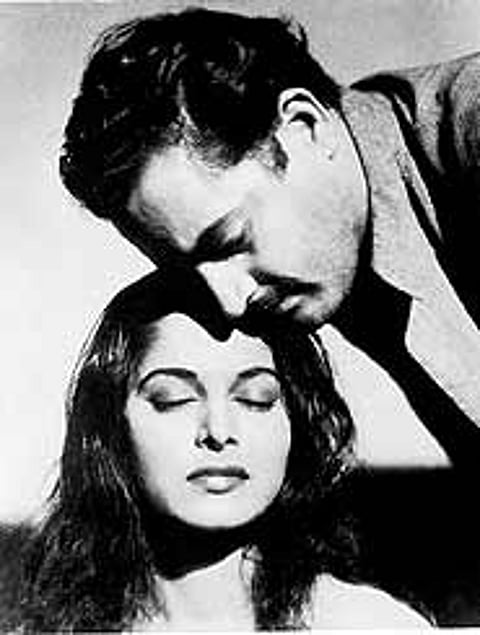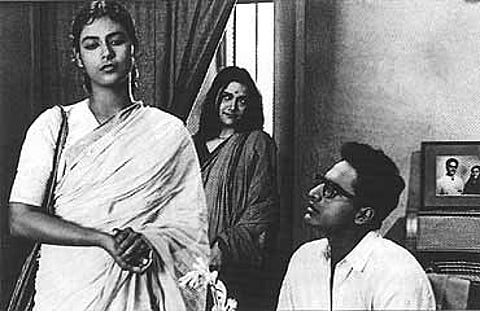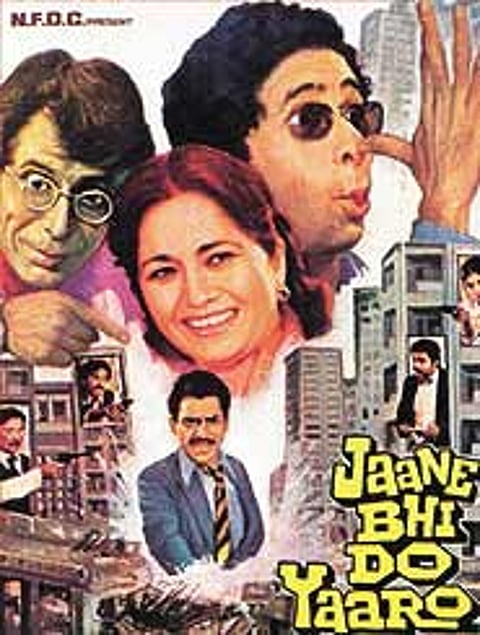These filmmakers inherited the compromise of the Congress party with the reigning pro-British Indian establishment, its continuation of the administrative and legal systems of the colonial masters, and the fact that the party joined hands with the most regressive of politico-religious elements on the Indian scene!
In the middle of it all was the ambivalent figure of Nehru, struggling with himself and the more feudal elements in his own party, with whom he had to adjust because he wanted to remain in power. So, in a sense, Pyaasa is Guru Dutt's and Sahir Ludhianvi's question to Nehru: Jinhe naaz hai Hind par woh kahaan hain?
In Guru Dutt's vision, the tragedy of the poet and the prostitute was similar. Both were doomed to destitution, disease, and emotional and social isolation. It is one of the most scathing indictments of post-Independence India. The film, like all good films, political or otherwise, provokes questions and provides no readymade solutions. The minds behind Pyaasa are "independent nationalists". No one rides into the socialist sunset holding hands but by the end the audience has gone through a journey to the heart of the Indian reality.


